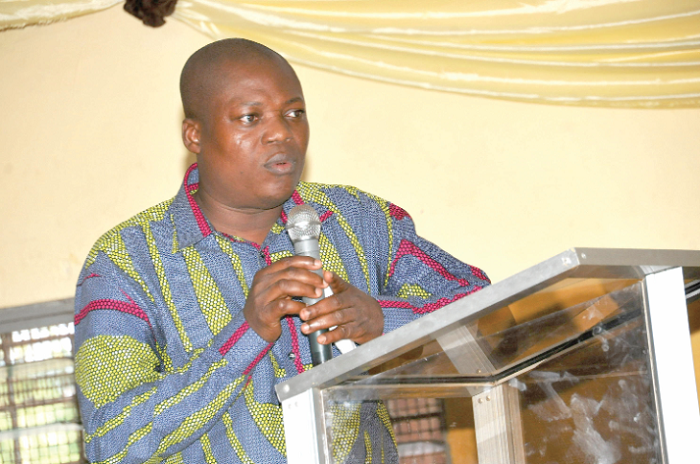
Prof. John Gatsi has called on the government to rethink on its free SHS policy especially the role of Parents and Teachers Associations (PTAs) in providing infrastructure in the school.
Prof. Gatsi made the call when he was chairing a public lecture on the role of PTAs in the implementation of the Free SHS organized Keta [ads1]Secondary Technical Past Students Association on Friday, 2nd March 2018.
According to him, it is not possible for the government to provide all the school infrastructure needed by all schools within the medium term. He revealed that as it stands now there are many ongoing projects funded by PTAs across the country and those projects may not continue because only the parents of form two and three students are paying PTA dues which is the main source of financing those projects.
Prof. Gatsi who is also an old student noted there is already a huge infrastructure deficit in the school and taken away the PTAs levy as a result of the Free SHS policy will put an additional burden on government.
“The need for government to rethink its free SHS policy on PTA dues is crucial” – He emphasized
Tracing the history of PTAs in schools, Mr. Aheto-Tsegah, a former Director-General of Ghana Education Service who was the Guest Speaker at the lecture indicated that the educational system has key stakeholders with the role of PTAs as filling the gap to compliment the obligation of government.
He further explained that the management of the Free SHS Policy needs vibrant PTAs and called for national discussion to ensure the proper place of PTAs.
Prof. Gatsi in his closing remarks bemoaned the conversion of teachers bungalows to students dormitory saying “it is not the best thing to happen”
He has since called on all stakeholders to work together to solve infrastructure deficits in the schools.
The free SHS policy implementation by the government in September last year was one of the boldest decision taken to fulfil a campaign promise. The policy, starting from the first years students in all public SHS in the country allows them to enjoy free education ranging from tuition, boarding and other levies.
The policy just like many other social intervention projects by governments has not escaped challenges with many prominent people questioning the rationale behind the mass implementation and the various components of the policy.
Source: AwakeAfrica.com | Efo Korsi Senyo









